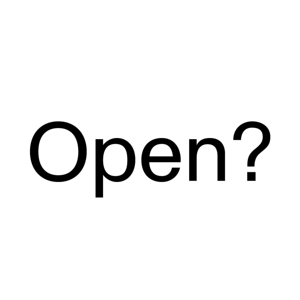The Oceans Have Opinions
Below are some extracts from the podcast recorded by Chus Martinez and Markus Reymann for Voices (Towards Other Institutions). To listen to the entire audio recording, visit pavilionrus.com.
Markus Reymann:
What is the future responsibility of the cultural institution?
Chus Martinez:
It’s the same as in the past, but with some modifications, I think. Of course it depends if cultural institutions have a collection or not, just to be technical. If they had a collection, then the responsibility and the mission was defined by taking care of the objects, primarily. The objects became a real problem because most of them were, let’s say, taken or stolen because of our colonial past. The objects are becoming also very problematized and probably we need to switch that mission into taking care of the people. The definition was to take care of patrimonial goods, and with the patrimonial goods build some sort of memory. That memory was a heritage that configured an idea of identity. So right now the most important thing is social engagement, care, love, social justice. The question is, can institutions engage with their own audiences instead of engaging only with the objects they exhibit? Is it possible to combine both aspects? Are people at all interested in art? Or are some of the demands so urgent that actually they go beyond the question of exhibition, as we know it till now, and people really want and need first to meet the artists and then to meet the art? These are legitimate questions that are going to affect how institutions evolve in the next decades, I think.
Markus Reymann:
When so much of the current moment is identifying evidences of atrocities of the past—and on ongoing atrocities of the past that are systemically manifest in the current moment—and through that deconstructing the objects that bear witness to this past, and to the perpetuation of this past into the present and into the future… How is it possible to deconstruct or make evident, on the one hand; and at the same time, out of this, create something new, or maybe not new, but different?
Chus Martinez:
I think it’s an incredible question because this is going to be one of the biggest challenges. How to produce a coexistence of the “analytical” and necessary revision of the past—which implies also dealing with the pain that it causes, and the negative forces that it may unleash…. with the “propositional” and the necessity to actually trust, and move forward, and produce interconnectivity among different communities, which is not based in cynicism or in mutual operative energies and so on and so forth. That’s going to be very demanding, but there is no other way, but to trust and try. And there is an additional problem with fear, because fear blocks possibilities. People are going to be very afraid of making mistakes, but this is a process that is not possible if we don’t make mistakes. And there needs to be a level of forgiveness and generosity in the mistakes we all made, because our past is of course part of our responsibility, but many of us really want to contribute to a different energy and a different future. But it’s not that we are going to do it free of mistakes tomorrow.
Markus Reymann:
There is the identification of what you need, the knowledge of what you need… and then there is an application of something that will help you survive. We’ve been carrying this conversation for nearly three years, and the fabulous thing is that this is not about the solution. It’s about constantly engaging in this process of not knowing.
Chus Martinez:
Absolutely. We talked about it many times: inventing exercises has been from the beginning of our conversation a big point. I think it’s not about statements, and it’s not only about realizations. To realize something, to become aware, is fundamental. To state it, of course, is fundamental. But it does not necessarily transform your behaviour, or transform the way you feel about it. And to transform your behaviour, you need really an experience—which is a physical experience, an exercise. Traditional art practices have not been about inventing something physically. They have tried to invent it through the mind. So, in that case, the exercise happens in your mind: you imagine it happening, and it belongs to the realm of personal autonomy. You, as an individual, experience something enormous in the presence of an artwork, that can also be described as an exercise of imagination that challenges your life. But now we need to go one step forward. I think now it needs to be even more obvious, and go not only into the autonomy of the mind, but also it needs to reflect into the possibilities of the body.
Chus Martinez is a Spanish curator, art historian, and writer. She is currently the director of the Art Institute at the FHNW Academy of Art and Design, Basel, where she also runs the Institute’s exhibition space Der Tank. Additionally, Martínez is the artistic director of Ocean Space, Venice, a space spearheaded by TBA21–Academy that promotes ocean literacy, research, and advocacy through the arts. In 2017, Martínez was curator of KölnSkulptur #9. She sits on the advisory boards of numerous international art institutions, including Castello di Rivoli, Turin; De Appel, Amsterdam; Deutsches Historisches Museum, Berlin; and Museum der Moderne, Salzburg.
Markus Reymann is Director of TBA21–Academy, that he co-founded in 2011, which fosters interdisciplinary dialogue and exchange surrounding the most urgent ecological, social, and economic issues facing our oceans today. Based in London, Reymann has presented on art and the oceans at conferences internationally, including at the 2017 Starmus Festival (Bern), the Explorer’s Club (New York City), and the annual UN Climate Change Conference.



